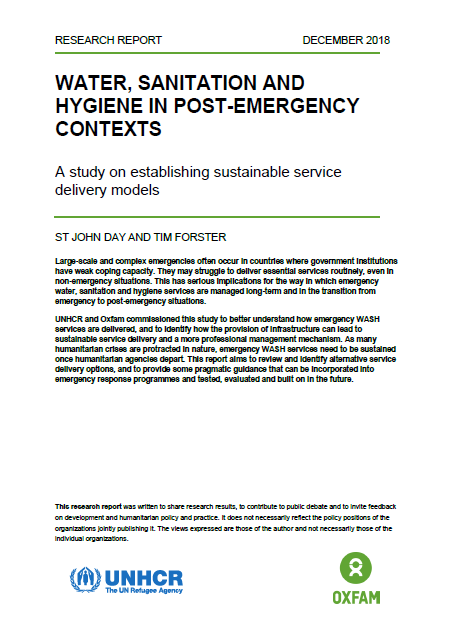Water, sanitation and hygiene in post-emergency contexts
 |
A study on establishing sustainable service delivery models
informe Dec 2018 ; 40 páginas
Aut.
Ed. UNHCR - Genève OXFAM UK - Oxford
Formato descargable: PdF
Descargable desde el editor
Abstract:
Large-scale and complex emergencies often occur in countries where government institutions have weak coping capacity. They may struggle to deliver essential services routinely,even in non-emergency situations. This has serious implications for the way in which emergency water, sanitation and hygiene services are managed long-term and in the transition from emergency to post-emergency situations.
UNHCR and Oxfam commissioned this study to better understand how emergency WASH services are delivered, and to identify how the provision of infrastructure can lead to sustainable service delivery and a more professional management mechanism. As many humanitarian crises are protracted in nature, emergency WASH services need to be sustained once humanitarian agencies depart.This report aims to review and identify alternative service delivery options, and to provide some pragmatic guidance that can be incorporated into emergency response programmes and tested, evaluated and built on in the future.
Destino Audiencia:
Palabras claves: |
conflicto (CI) (DT) (HP) (ope) , humanitaria de emergencia (CI) (DT) (HP) (ope) |
Editores/Difusores: |
|
UNHCR
-
Haut Commissariat des Nations Unies pour les réfugiés - Genève - Suiza |
OXFAM UK
-
OXFAM United Kingdom & Ireland - Oxford - Reino Unido |
Si hay un enlace roto, estaremos encantados de recibir un mensaje: communication@pseau.org